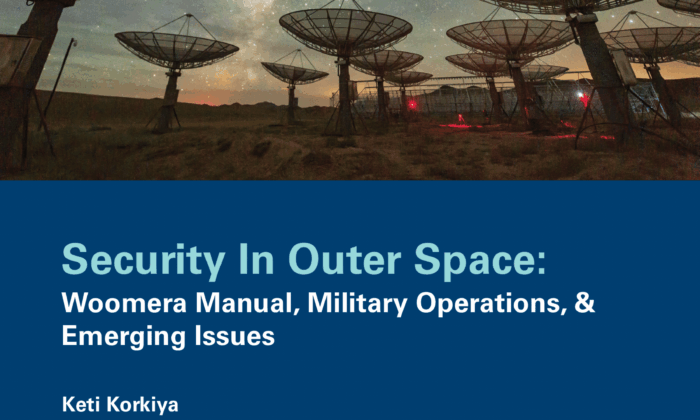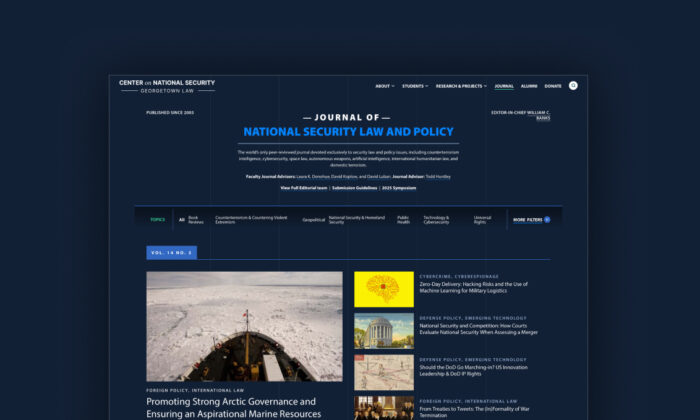Author: Laura West
America’s perspective of the global security environment vastly altered after the discovery of the Russian interference in the 2016 U.S. Presidential election. The United States, as a result, quickly found itself in the midst of a nascent shadow war or “great power competition.” Critically, this state of affairs forced the inevitable collision of the two “fifths”—covert action, known as the “fifth function,” and cyberspace operations, known as the “fifth domain.” Over the span of more than a decade, both the fifth function and the fifth domain emerged and operated in parallel but often intersecting ambiguous legal architectures, resulting in interagency infighting and uncertainty regarding governing legal authorities. Spurred by the reemergence of great power competition, the resulting intersection between these legal frameworks governing covert action and cyberspace operations created what is the focus of this paper and referred to in this article as the “fifth fight.” This shorthand term of “fifth fight” stems from the internal U.S. government fight for authorities to conduct covert or secret cyberspace operations and refers to the resulting external conduct of these secret cyberspace operations.
This article provides an overview of the unique domestic legal frameworks for covert actions and cyberspace operations and shows that in an era of great power competition this “fifth fight” forced recent significant changes to the governing frameworks. Specifically, recent congressional action altered decades worth of operating legal structures and oversight mechanisms concerning covert and cyberspace operations. The altered legal frameworks largely evaded much public comment outside national security circles and their effects are still being tested and are not fully known. This article highlights these recent changes and argues that the “fifth fight” created notable implications for the future nature of conflict, accountability, and responsibility when it comes to the United States confronting great power competition.
The U.S. government, especially policymakers and national security practitioners, must consider this critical stage of conflict America has now entered and the shifting national security priorities. The new legal landscape created by the “fifth fight” opened a clear path for fast-paced, secret, constant, and persistent engagements in cyberspace to counter and deter adversaries. Yet, the “fifth fight” may ultimately be a destabilizing one without the careful balance of other instruments of national power, executive policies and decision-making processes that create effective checks on action, robust congressional oversight, and efforts to create public trust, transparency, and build partnerships. This article is meant to bring these considerations into the forefront of discussion when considering the future of great power competition and cyberspace operations.



